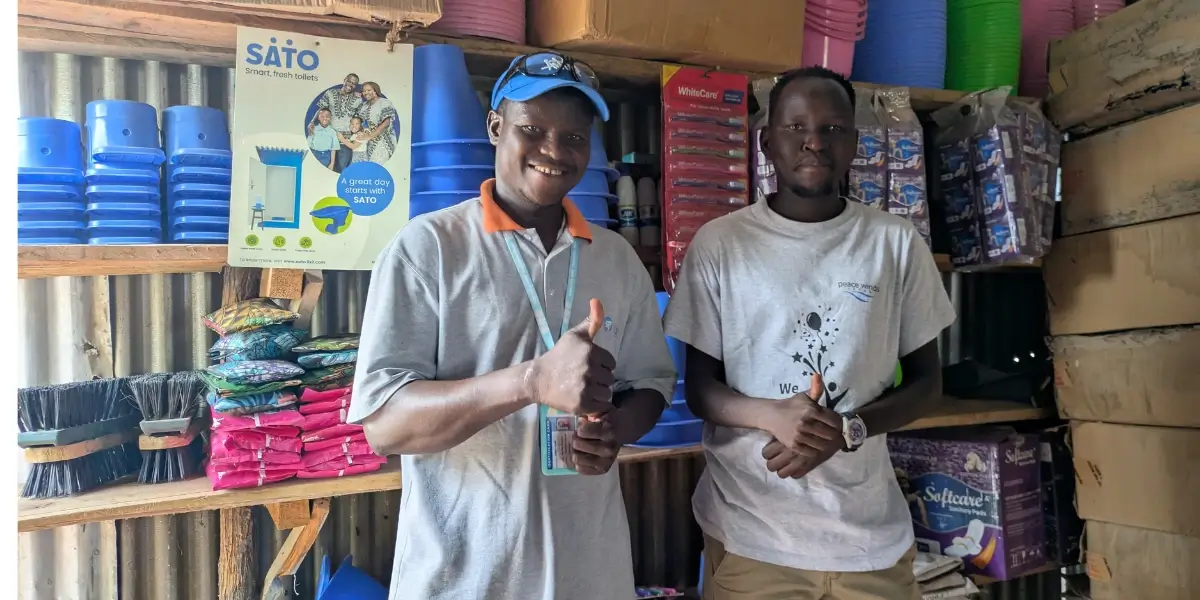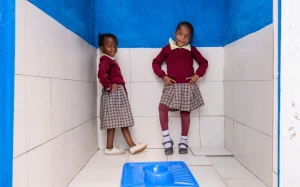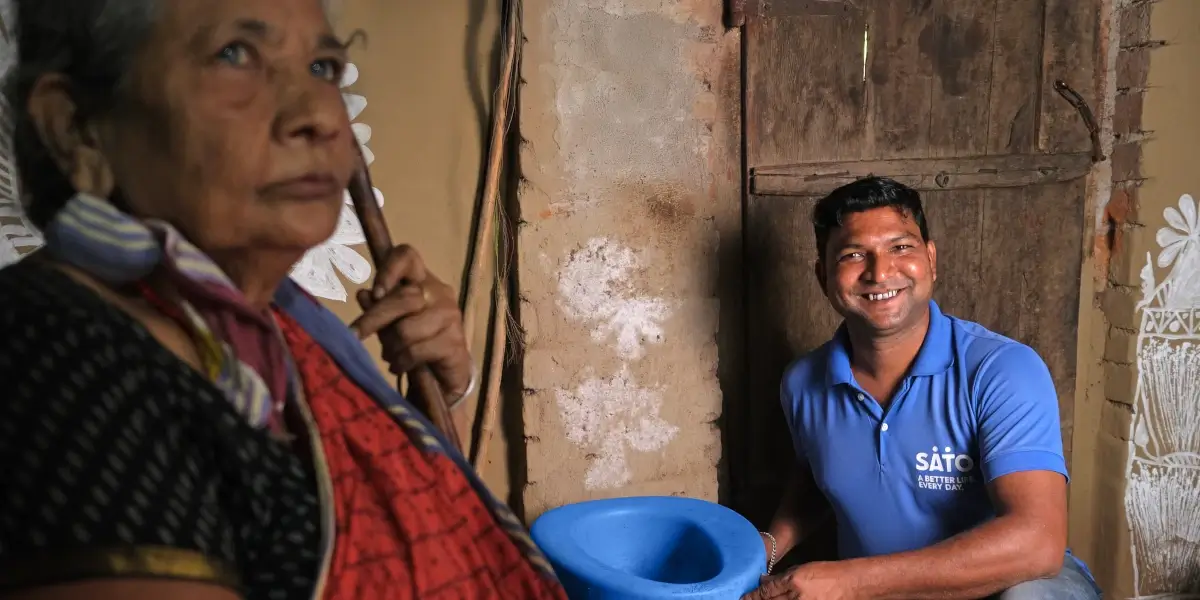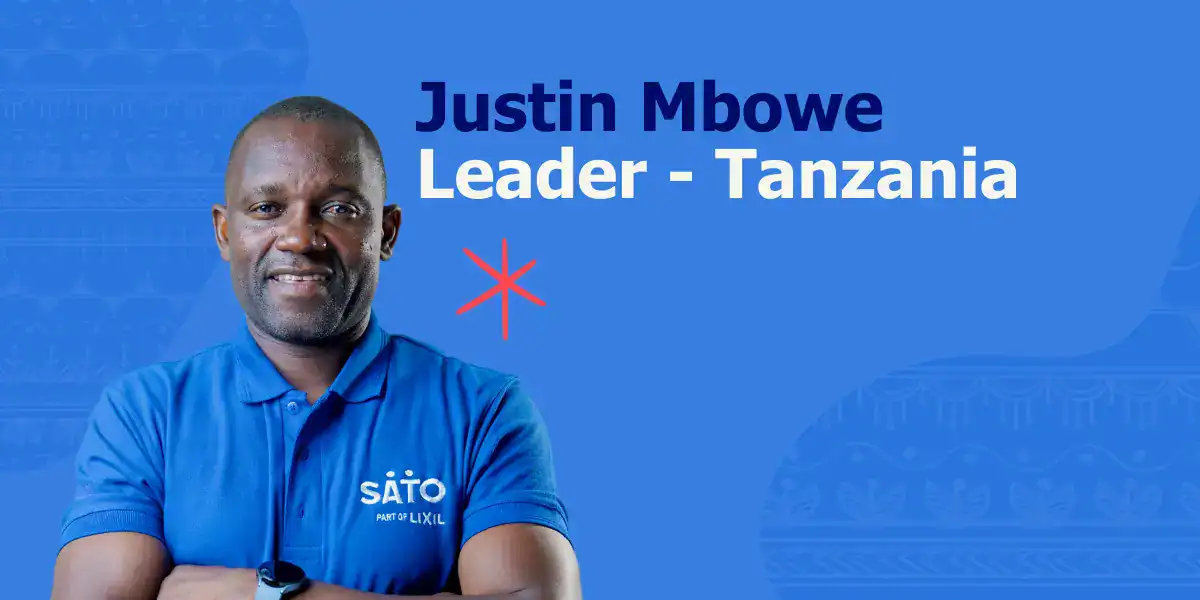
Rwanda: creating more than 35,000 brighter futures

By Cyrus Ntaganira
Rwanda has big plans. According to the World Bank, the nation aspires to become a Middle-Income Country by 2035 and a High-Income Country by 2050. These plans centre on ambitious poverty reduction schemes and economic growth (which averaged 7.2% over the decade to 2019). [1] These goals will not be achieved unless they are accompanied by resilient, long-lasting improvements to infrastructure and essential basic services. [1]
Rwanda’s people and government demand rapid change. And, that demand presents a really exciting opportunity for social businesses like SATO to leverage our heritage in new product development, technology and innovation, and experience working with cross-industry stakeholders to introduce award-winning sanitation solutions at pace.
In late 2022, alongside the Ministry of Health and other partners, we began a community engagement programme aiming to improve awareness of good hygiene and sanitation practices. During this activity, we built a strong partnership with Water for People and connected with its Isoko y’Ubuzima project – a five-year USAID-funded project launched to improve WASH services across many districts in Rwanda, Rulindo among them.
When we presented the incredible success stories of SATO’s School Toilet Enhancement Program (STEP), Rulindo district took the decision to accelerate the improvements to their school sanitation systems. Under Rulindo district’s acceleration plan, 1,400 SATO Pans were installed in 86 schools, meaning 103,200 students across the district no longer had to endure unsafe and unhygienic open-pit latrines.
How was this incredible change achieved in such a short time? During our awareness campaign, we discovered the district had a huge appetite for sanitation improvement. After introducing an audience, which included the Rulindo Mayor and other district officials including school leaders, to our affordable and award-winning sanitation solutions, it was immediately clear that this would be transformative for the community. The most common reaction we saw was surprise and relief that this change could happen. However, importantly, our engagement programme revealed several challenges that we needed to overcome.
Many schools faced a two-part problem. Firstly, they did not have the upfront funds to invest in sanitation solutions, particularly if they had several toilet blocks in their school. Secondly, they were frequently spending money on consumable items like air fresheners and cleaning products to ensure the open latrines were clean and smell-free to pass school inspections by the district administrators. These expenses were a drain on the school’s resources, and we knew that SATO products could save money for these schools in the long run, while creating a better sanitation experience. To make this a reality, the Government helped create an enabling environment for SATO to drive awareness amongst local school leaders. The increased awareness, combined with support from our partner ECOMEM, which provided monthly financing options for those upgrading at scale, helped to ensure that schools across the district could access better sanitation.
The other major challenge was geographical. SATO Toilet retailers were far away from most of the schools, meaning the trip to collect the Pans would be too difficult. We solved this by bringing the SATO stock in bulk from Kigali, creating a central hub within Rulindo district where representatives from every school could gather and collect the SATO products they needed.
Successful sanitation and hygiene programmes are not only built through the provision of affordable or accessible solutions but also through the creation of long-lasting and resilient ecosystems that support consumers long into the future. This is where SATO’s model shines. Rwandan SATO representatives were needed to liaise with the schools and ensure a successful process from start to finish, and masons were needed to install the SATO Pans in schools.
We brought the necessary skills to local masons through our partnership with Water for People and their Isoko y’Ubuzoma project. Within Rulindo district, 20 masons and 19 district health representatives have been trained in the installation of SATO products. Bringing outside workers to local communities would be costly and time-consuming, and we have learned through experience that the best way to ensure the community takes ownership of its hygiene and sanitation systems is to place them at the centre of the ecosystem. By working with SATO, they became champions of the district’s safe sanitation and hygiene programme.
Engaging high-level stakeholders and community leaders is also a must to bring about meaningful change. The benefits of this are, firstly, they can enact change quickly by leveraging their influence in the community, and secondly, they can tell the story of success to a wide audience. This is the effect we saw when the Mayor of Rulindo district, Judith Mukanyirigira, saw the incredible possibility of SATO. She worked closely with the SATO team to share information with the community and encourage them to embrace SATO as a tool for improving their district’s sanitation and hygiene.
The other important benefit to engaging community leaders is the ability to positively leverage the competition between districts. As part of Rwanda’s bold development plans, districts are inspected yearly and ranked on wellbeing metrics such as education, agriculture, economic progress, and women’s empowerment. This means innovative solutions to widespread problems are highly valued and successes are widely shared. In Rulindo, community leaders immediately recognised how SATO could improve the lives of their communities and that this progress could be communicated to their neighbours. As a result of our work, SATO, through our partnership with Water for People, has already begun talks with representatives of Karongi district, who are looking to install over 200 SATO toilets to improve their school’s sanitation after noticing the incredible improvements made at speed in Rulindo.
Our work in Rulindo has taught us valuable lessons about how to align ourselves with the competitive and entrepreneurial spirit already present in these communities to not only work at speed but to amplify the progress we make across the country. I believe that we can take these lessons forward to our work in improving school sanitation in the world to give people a Better Life, Every Day.
[1] The World Bank
WANT TO STAY UP TO DATE?
Subscribe to our newsletter to stay on top of the latest news, views, and stories from on the ground.
The easiest way to do this is to sign-up for our LinkedIn newsletter here. We'll then send you a bi-monthly letter from our Leader, Erin McCusker.

Similar articles
While global in scope our stories are local at heart.



 Copyright © LIXIL 2025
Copyright © LIXIL 2025